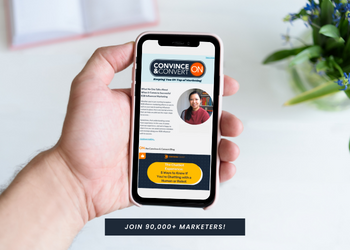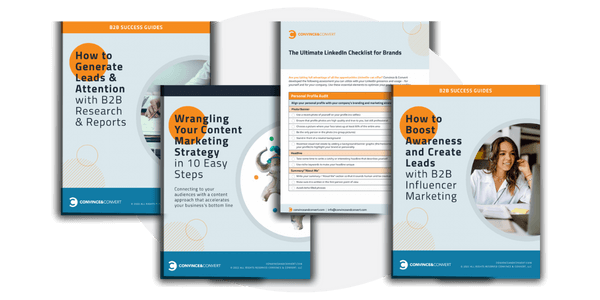
Traditionally, we view marketing as an outward-facing function, saving our best branding and messaging experiences for our customers. While that makes perfect sense in theory, we need to evolve our thinking. Being focused solely on the customer doesn’t cut it anymore. Marketing is about creating the best experiences for everyone your brand interacts with—especially your employees.
It might sound crazy coming from a former CMO, but your biggest marketing assets aren’t your leads, customers, or even your brand. Your brand is simply the sum of the interactions your company has with others. Therefore, people are your biggest marketing asset.
When I was at ExactTarget, Scott Dorsey preached that employees came before our customers. While it might’ve seemed contrarian at the time, this belief was our biggest differentiator as a company. We intentionally used many of the same channels to “market” to our employees as we did to engage our customers. The experiences you create for others (whether internal or external) can either be the biggest reinforcement or detractor of your brand. Your employees are the secret weapon in unlocking truly authentic brand experiences. After all, if they don’t believe in you, how can you expect your customers to do the same?
Your employees are the secret weapon in unlocking truly authentic brand experiences. Click To TweetBuilding a People-Centered Culture
Everyone says they want their people to be a strategic asset to their brand, but how many actually put that into practice? In my experience, not a lot. Instead, they go straight to the end of the process, trying to emulate “culture giants” like Google and Zappos with painted walls, t-shirts, and relaxed dress codes. But building a culture that puts people at the center starts with a solid foundation that you establish in every process, every interaction, and every decision from day one.
1. Winning Is Foundational for Great Culture
People want to win. It’s inherent. A job can be fun and engaging, but without organizational success, employees will feel constantly defeated. That’s why winning is the most important attribute in creating great culture.
When I’m asked about the essential ingredient in building culture, my answer is always the same: “Win.” Of course, winning alone doesn’t guarantee a great culture, but I would argue it’s a prerequisite. Employees need an example of what success looks like in order to recreate it over and over each quarter. More importantly, they need to understand how their role contributes to that success.
Have you noticed that the times you or your employees are the happiest and most productive are often when you’re working your hardest? Hard work that contributes to a bigger vision produces a sense of accomplishment and a high that makes you want to work harder again and again. At our core, we all want to contribute to a winning team.
2. Identify Clear Ownership So Culture Isn’t an Afterthought
Company leaders tell me all the time that they’re serious about culture, but my first response is, “Who owns it? Is there budget assigned to it?” If you want to build a true and successful culture, it cannot be an afterthought.
In many companies, the role of culture advocate somehow defaults to HR. But how can culture truly be a priority amidst other huge initiatives like payroll and benefits? Like any other strategic priority, it needs an owner, budget, focus, and clear success measures. If you don’t have this in place, you’re honestly giving more lip service to culture than making it a true strategic priority.
3. Establish a Greater Purpose
We all feel called to something bigger than ourselves. We long to be a part of a larger plan—to leave an impact and legacy behind. Does your company make your employees feel their work matters?
Yes, people want and deserve to be paid fairly. But in the teams I’ve managed, pay is often the third or even fourth factor in what makes them want to work harder. It’s not always about the work you’re doing, but the people you’re working with—that they care about the team and being an ambassador for the brand. Working hard is simply the byproduct of buying into the company and feeling empowered to do your best. You can feel this the moment you walk into a building where companies do this well.
4. Let People Experience Culture in Their Own Way
Not everyone experiences culture in the same way. The culture advocates we most often see are from marketing or have a “rah-rah” spirit about them. But what about the developers who like to work in a dark room and double-down on code? Are they not as equally engaged? You can’t assume that you experience culture in the same way everyone else will. And if you’re a global business, the way individual offices partake in the corporate culture will have the same foundations, but will most likely be executed in different ways.
You can’t assume that you experience company culture in the same way everyone else will. Click To TweetEach region, each team, and each individual will have their own take on your culture, and no one way is more right than the other as long as it holds true to the same core values. I call this “freedom within a framework”—creating the boundaries, but letting employees own how it is expressed. Culture cannot be forced, or else it won’t work.
Save Your Best Marketing for Your Employees
People run your business, not products or services. They’re what make your brand what it is. If they’re not living, breathing, and experiencing the brand in the same way the marketplace does, there will be a big disconnect, leading to poor customer service and an eventual breakdown from the inside out. Don’t reserve your best marketing for your customers and prospects. Save it for your employees by engaging them at their core and empowering them to build the business with you.

